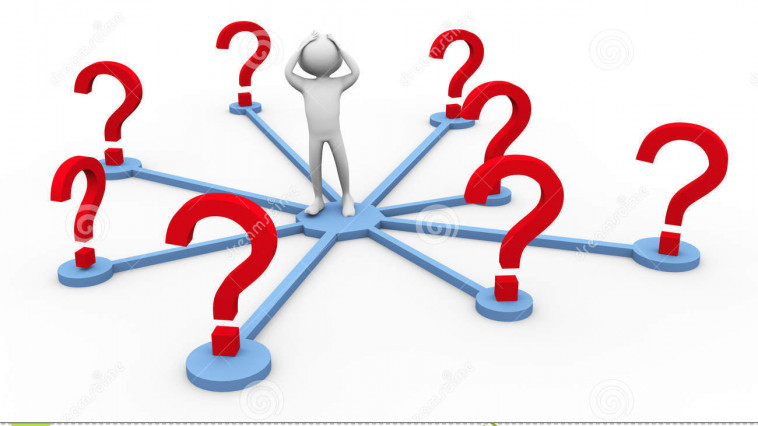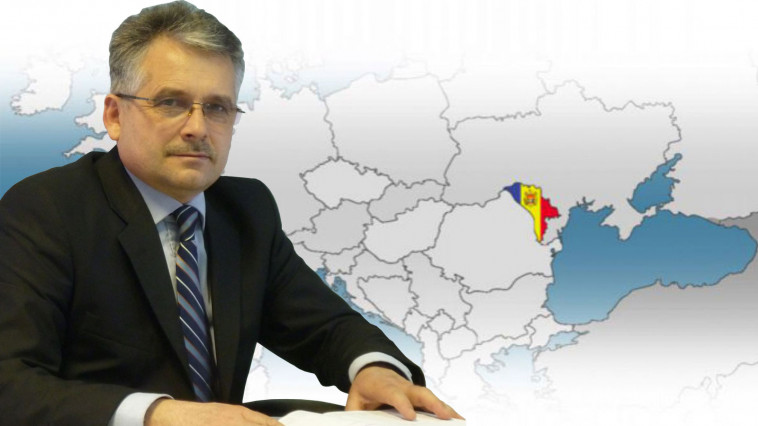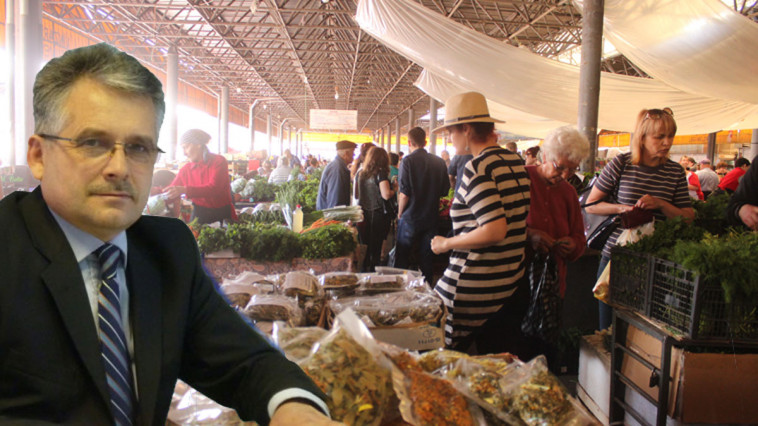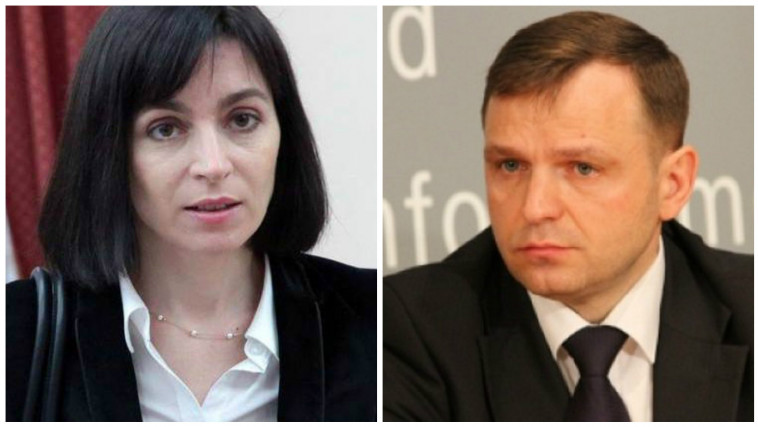Alexandru SOLCAN // Presidential elections. Act One. Who will I vote?

The fact that brings joy in this presidential exercise is that politics becomes increasingly personalized: none of the candidates cannot longer hide behind the party lists, with many anonymous, and citizens will not find themselves with the horses of Caligula (word of Giovanii Sartori) in the Parliament. It is known, that the Roman emperor, Caligula, made his horse a senator. The allusion of famed Italian political scientist is, therefore, clear: the animals that can get - democratically! - in the representative bodies.
But the great paradox of this campaign is the stubbornness with which opposition parties covet to the presidential position. The applicants behind whom is an opposition party seems to want the least a position, that is ultimately, a symbolic one. Because it is likely that in the parliamentary elections, which will take place after two years the natural complaints - which the citizen has towards any government - will be transferred as well on the party represented by the respectively president. Or in a parliamentary republic, such as Moldova, namely these elections are the main stake. Out of strategic considerations, therefore, the major political players (parties) should not be burdened with responsibilities that do not have a word too hard to say (I am referring of course to the presidency), but which, instead, can significantly reduce your parliamentary chances. However in our country the context dictates the strategy. Proof that our political actors play - pushed the parties - in the short term, which in the long term, carries the risk of disqualification. If it is not about ignorance or a miscalculation, then you wonder what the real intentions of the candidates are...
About stakes and assumptions. The theory says that one of the features of the ontological policy is its competitive nature. The dichotomy seizure - the maintaining of the power requires different rules and standards of behavior for actors and political institutions, reflected in the applied strategies: To smooth out - escalate (a conflict), a dialogue - a confrontation, tension - relaxation. The government will try to ensure stability in the hope that this will ensure the perpetuation in the system and the opposition, on the contrary, will try to destabilize it, just to be able to take over the power.
Therefore, it is natural when the government wants a president to exercise his functions in strict compliance with legal provisions and the Presidency in its turn, to be involved fully in the projects assumed by the government (primarily the Association Agreement) . This country has very little time: only two years, until the parliamentary elections. And debts are big. Many reforms will arouse discussions in the society discontent, maybe even riots. However the reforms are absolutely necessary. If we compare Moldova with a seriously ill patient (and the comparison unfortunately, is required), a "surgical intervention" is inevitable. The reforms - of any kind - are painful - but, sometimes, it is the only way of saving the patient.
The current government relies, obviously, on Marian Lupu, the formal leader of the Democratic Party and an experienced politician. He held important positions in the state, starting with the communist government, when President Vladimir Voronin appointed him as speaker to (as it was thought then) give a more European aspect to the rusty communist government from Chisinau. Marian Lupu's transition from the Communists to Democrats after the elections from April 2009, also has been fatal to PCRM: after the elections from 29th July 2009, it was possible a pro-European alliance. During this period Marian Lupu was the president of the Democratic Party, one of the ruling parties, occupying high state positions: chairman of Parliament (2010-2013) and Temporary President (2010-2012). Unfortunately, the benefit of those in power after 2009 has not justified the expectations of citizens. The period culminated with the bank theft. It followed the Kroll report. Then arrests, resignations and, finally, the reconfiguration of governance.
The situation of those from the government is not to be envied. The country was basically put on blocks. The Government needs an agreement with the IMF like air, to unlock the financial isolation, which means assuming the commitments once taken for the guarantees of the bad loans, offered by the three banks. The opposition is forgetting those responsible for the theft of the billion. More than that: even victimize them! It reacts, instead, super-sensitive to the decision of the current executive of commitments offered to the NBM. It does not matter neither the arguments that the assumption is more formal, no the fact that more than half of the stolen amount was also found is to be recovered through courts, nor the fact that an agreement with the IMF would open the country's ability to access grants that excess three times the amount you have to repay.
As we see, Marian Lupu comes on a complicated political background. He bears a part of the responsibility for the failures after 2009, but also the hope of the processes that began at the end of last year. Marian Lupu attempts to address politics as an art of the possible, while many of us, often, want the impossible.
The stake of the opposition. The insistence with what those from the opposition crave the power betrays a hidden agenda of the protagonists, but especially of those behind them: the destabilization of the situation. If there is failure to cause early elections, or the Constitution and the context leaves little chance for it, then a permanent tension, now from the country Presidency as well. The most radical of the opposition game is the candidate of "Our Party", Dimitri Chubashenko. He says what the of Renato Usatii supporters want to hear: early elections, denouncing the Association Agreement, proximity to Russia. The socialist Igor Dodon speaks, as well about the anticipated elections, however it is noted that he does not believes very much in their ability. The leader of the "DA" Platform, Andrei Nastase, abandoned the electoral race, forwarding to Maia Sandu, with "baton", and a big dose of radicalism.
Aside from the PSRM candidate, Igor Dodon, another opposition candidate with the chance to pass into the second round is Maia Sandu. I'd like to vote her as well, to be, as they say, in line with the many colleagues from the academic environment, along with many young people, some of whom are even my students, and the world wants a president with integrity, honest, competent, that is not a part from the ruling party. That in order to have "my man", who monitors, alarms and punishes. I try to analyze things from the perspective of the citizen who cares deeply to his vote. I analyze candidates' messages. I'm interested in everything: entourage and teams of the candidates, the present and the past of these people. I want a president who really wants a change, not simply replacing certain oligarchs with others.
Until the election remains less than a week. The Presidential candidates are in a straight line to the finish. From competitors is expected all kinds of accelerations and tactical moves to win. The central printing house began printing the ballot papers. One of them is mine. I would want to use it judiciously as possible, not to screw it up, to vote after I will be very well balanced. That is my urge to yourself as well.

















